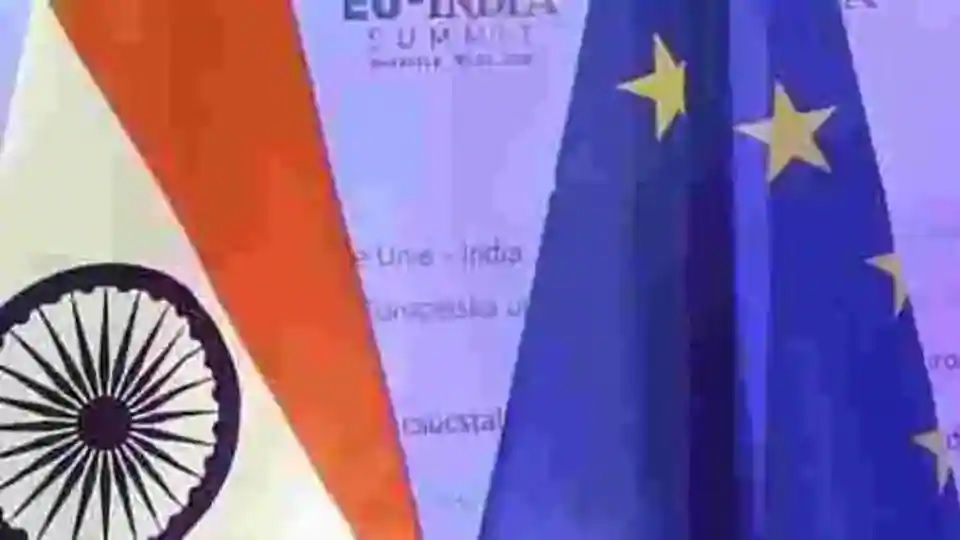July 14, 2020: With new leadership taking over in the European Council and European Commission last year and the NDA government securing a second term, the two sides had decided to look afresh at BTIA and see if they could reach common ground and take things forward.
The stalled negotiations between India and the European Union (EU) on a trade and investment pact could get a fresh push when the two sides hold their virtual summit this week amid efforts by both parties to build supply chains that are less dependent on China.
Negotiations on the broad-based Bilateral Trade and Investment Agreement (BTIA) began a little more than 13 years ago though the two sides haven’t had very substantive engagements on this issue in the last few years, mainly due to differences over matters such as access to the Indian market for European products and the movement of Indian professionals in EU states.
With new leadership taking over in the European Council and European Commission last year and the NDA government securing a second term, the two sides had decided to look afresh at BTIA and see if they could reach common ground and take things forward, people familiar with developments said on Monday.
The 15th India-EU Summit, to be held via video conference on July 15 and co-chaired by Prime Minister Narendra Modi, European Council President Charles Michel and European Commission President Ursula von der Leyen, could give fresh impetus to these efforts, the people said on condition of anonymity.
“This summit will be critical in terms of trying to find a meeting ground between the two sides and find a way forward,” one of the people cited above said.
At a time when India has been taking a more critical look at trade and investment with China, EU states are examining the issue of “over dependence on some suppliers” and the European leadership has spoken publicly about economic sovereignty and strategic autonomy, which requires that countries shouldn’t be completely depend on the outside world for critical supplies, the person added.
The leadership of both sides have also spoken of the need to diversify supply chains and to make them more secure.
India and the EU will also focus on strengthening multilateralism during the summit amid uncertainty created by the Covid-19 pandemic and the rise of an assertive China.
Besides charting a roadmap for the India-EU strategic partnership till 2025, the two sides are also expected to discuss the impact of the Covid-19 pandemic and its fallout on the global economy and international organisations.
Earlier this year, the European Parliament was critical of both the Indian government’s decision to scrap Jammu and Kashmir’s special status in 2019 and the controversial Citizenship (Amendment) Act, which cast a cloud on the overall relationship. There was clarity on whether these issues will figure during the summit.
However, both sides are looking at greater cooperation in the economic field. The EU’s mission in India tweeted on Monday: “With EU-India bilateral trade crossing 100 billion EUR, and both sides having vast domestic markets and a strong entrepreneurial tradition, there is enormous potential for the EU and India to benefit from reinforced trade, economic and investment relations.”
The EU is India’s largest trading partner, accounting for trade in goods worth about $100 billion a year and trade in services worth $40 billion a year, with a surplus for India in both. EU investments in India are worth about $91 billion.
The EU is the second-largest destination for Indian exports (more than 14% of the total) after the US. However, India is the EU’s 10th largest trading partner, accounting for 1.9% of total trade in goods in 2019, and well behind the US (15.2%), China (13.8%) and the UK (12.6%).
India also sees the EU states as a key source of technology such as artificial intelligence and 5G, innovation and investments for sectors such as infrastructure, climate and smart cities. The EU is also a leader in creating standards for emerging technologies that manage national interests while keeping things open for glaobal engagements, the people said.
Source: Hindustan Times




